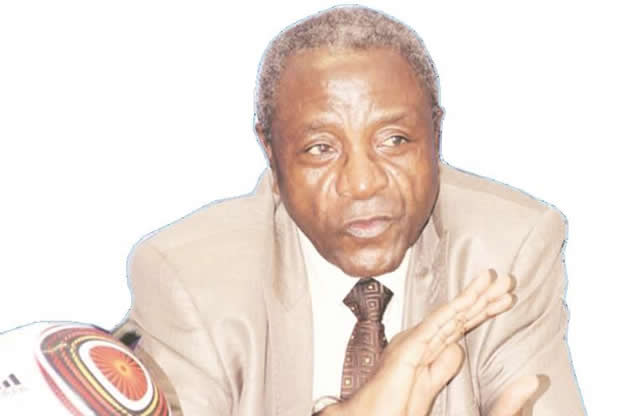Fighting naked greed

Reason Wafawarova On Thursday
The Zimbabwe media went into overdrive against corruption towards the end of 2013, and leading the way was The Herald. We all stood appalled by the expose of self-awarded predatory salaries enjoyed by unconscientious chief executives; most of them running public-owned enterprises.
Our polarised readers for once buried their political prejudices and endeared themselves to the nation’s leading newspaper, if only to stand in unison against the scourge of naked greed.
The then Vice President Joice Mujuru invited national wrath against herself when she charged that the media exposes were nothing more than political conspiracies cunningly designed to derail the country’s revolution, even suggesting that the whole campaign constituted a “national security threat.”
It is ironic that she finds it appropriate to release economic blueprints and election manifestos from the dungeon of the political wilderness — hoping to impress the very people she once failed to convince that exposing public sector corruption amounts to a threat to national security.
The ominous and scandalous conduct of politicians in turning a blind eye to acts of corruption is almost natural, and this is why we cannot bank on the goodwill of the politician in our quest to fight corruption.
Our economy is as bad as to exacerbate a Marxist-type of class struggle, and it is important for ZANU-PF in particular to position itself in line with the principles of the revolution for which the party stands.
One is reminded of the words of Leon Trotsky: “The party that leans upon the workers but serves the bourgeoisie, in the period of the greatest sharpening of the class struggle, cannot but sense the smells wafted from the waiting grave.”
While ZANU-PF has not exactly anchored its support base on the proletariat in the past 15 years, the revolutionary outfit has hugely depended on the peasant support of rural villagers, and lately the party has been making significant inroads in urban areas, attracting more and more workers back to its fold after the opposition MDC messed its relations with the labour movement in the country.
Corruption in its political terms is an expression of a conspiracy between politicians and the bourgeoisie, and for this reason the ruling party cannot be content with window dressing punishments against the country’s looting maniacs.
We as a nation endured the pain of watching the haplessness of the law as authorities struggled to place any charges against the likes of Cuthbert Dube and others, and now we hear that even those that were prosecuted and convicted were in fact victims of the “lower court misdirecting itself.”
The wheels of justice may turn as they will, but people will not endorse a system that persecutes corruption without convictions, especially where the shared belief is that kleptomaniacs have significantly contributed to the wrecking of the economy.
We cannot pride ourselves in a country where the labour of the masses, their faith in politicians, and life itself, seem to remain articles of political expediency, of sale and purchase, of robbery and exploitation, rendering the principle of the sacredness of human life a shameful lie, only uttered with the object of keeping the poor in poverty.
We have an economic crisis whose victims are the poor masses.
As such, we cannot allow ourselves to be led to solutions directed by the philosophy of the offenders in that crisis.
It is expected that the looting bourgeoisie is exceedingly interested in imposing its moral philosophy upon the exploited and cheated masses, but the role of any revolutionary politician is to stand by the masses. ZANU-PF is such a seasoned people’s party that must not be reminded of its revolutionary obligations.
Harmless prosecutions that will not result in convictions will not paint our justice system in good light, and this is why proper, thorough, and uninterrupted investigations must be undertaken before the accused are dragged to mere show trials, not because they did not commit any crime, but because they are enjoying the privilege of sugar-coated justice, or shoddy policing.
We have read about abstract legalistic requirements concerning certain aspects of the needed corrective action against the nauseating malfeasance in our country, and this appeal to abstract norms is sometimes not a mere bureaucratic philosophical mistake, but an absolutely necessary element in the art of class deception.
We have seen telling examples of what corruption can do to an economy from other countries, like the corruption leading to the Untied States economic crisis of 2007.
Here is a classic example of part of what was happening.
In 2005, an investment bank by the name Credit Suisse aggressively promoted loans to resorts, offering instant personal proceeds to borrowers and high yields to investors. We had our version of similar companies at the beginning of the millennium.
A resort catering company going by the name Yellowstone Club responded by taking a $375 million loan, immediately transferring $209 million to the founder’s personal accounts.
Startling is the fact that the terms and conditions of the loan actually permitted this kind of transaction. It’s a scam likely to leave our local looting class grinning with envy.
Credit Suisse barely bothered to appraise the ability of the borrower to repay, certainly because it had no money of its own at risk.
The loan package was part of a “collateralised loan obligation,” and it transferred all potential problems to institutional investors such as pension funds.
Put simply, all risk was transferred to public funds; like we find it easy to push all risk to the taxpayer, as our councils also freely push all risk to the ratepayers, or as our parastatals routinely transfer all suffering to the end consumer.
Credit Suisse did six resort deals of this nature in four years, totalling approximately $3 billion.
By 2007 the Yellowstone Club was in serious financial trouble, and at the centre of these problems was poor management, as well as unmanageable heavy debt servicing on the Credit Suisse loan.
By the time recession was officially announced, the club’s only option was to file for bankruptcy, and it did.
Citing “first lien” rights, Credit Suisse proposed an interim rescue plan which involved massive retrenchments for hundreds of the club’s employees.
The wealthy will always ensure the poor shoulder the economic heat. We just saw this with our own recent Supreme Court-backed mass retrenchments, did we not?
We have allowed a system where executives entrusted with the welfare of our urban people have cushioned themselves with tens of thousands of dollars per month, unflinchingly presiding over cities where ratepayers drink contaminated water, walk on streets of darkness, and endure menacing potholes on the roads.
The Montana bankruptcy judge fortunately saw through the Credit Suisse tricks, and he blasted the bank and the club owner for “naked greed” and of running a “predatory loan.”
This story is borrowed from the writings of Timothy Keller, a writer on religion, and he laments the idea of people who get rich while laying all the risk and consequences on the backs of the poor.
The Montana judge stripped Credit Suisse of its first lien position, making it possible for another buyer to purchase the club, and that way many jobs were saved.
So we are not the first country to suffer the selfishness of executives, and we will not be the last, for as long as the appetite for luxury remains unabated.
What we need is the political will to pursue a people-oriented justice system. Our political system must expose, not protect, the culture of kleptocracy.
The self-serving tendencies of the rich will forever seek to relax the law, and to promote a new kind of permissiveness.
We have this kind of permissiveness that allowed the fleecing of our poor people by unscrupulous so-called land barons, in reality plain criminal frauds camouflaging themselves in vainglorious political colours.
Saviour Kasukuwere will have to live up to the meaning of his first name, and save our people from the menace of criminals hiding under the cover of political correctness.
We probably have come to a point where the Zimbabwean culture has been adulterated so much that our otherwise deeply conservative people have replaced ubuntu with money.
Even our Christian leaders have decided to make a shameless mockery of the goodness of the faith, competing fiercely among themselves for souls for cash, and totally abandoning the thankless commission of winning souls for Christ.
We must come to a point where the position of the corrupt is precarious, and to do so we need a leadership driven by the passion for social justice. While our people are suffering, we have those whose only worry is the terrorising impatience of watching their wealth pile up so agonisingly slowly.
We have transformed the country into a money-addicted state, and we have relinquished all ethical responsibility that comes with the idea of honest living.
Our economy is down because we have allowed the culture of greed to flourish across our national ethical fabric, eating away our conscience.
The sad thing is that most of us will not allow ourselves to see the greed and avarice within ourselves.
Greed as a sin hides itself from its victim, and this money god reigning supreme in Zimbabwe today blinds its victims.
It is painful to be part of a generation whose leadership sanitises its heartlessness by revolutionary rhetoric, or by contrived misplaced Bible verses — all to the detriment of the overly trusting masses.
One suddenly realises that people far richer than themselves surround them the moment they enjoy the fruit of their first loot, and the accumulation urge naturally perpetuates itself.
They stop comparing themselves to the rest of us, and begin comparing themselves to those in the enclosed community of the wealthy — most of them egregious looters.
Those in the religious sphere, particularly those purporting to be of the Christian faith, must of necessity take note that Jesus warns people far more often about greed than about fornication, adultery and homosexuality put together.
But hardly do modern day pastors preach against greed, or offer counselling services to remedy it. Our pastors now teach prosperity gospel that promotes unabated selfishness, sadly all in the name of blessing.
The naked greed in our country is not limited to bad governance, as the politically-minded would want us to believe. Rather it is a calamitous culture cutting across our entire socio-economic-political fabric.
The mass reaction could be shocking if the entire truth about the scourge of corruption were to be revealed in its truthfulness.
Zimbabwe we are one and together we will overcome. It is homeland or death!!
- REASON WAFAWAROVA is a political writer based in SYDNEY, Australia.










Comments